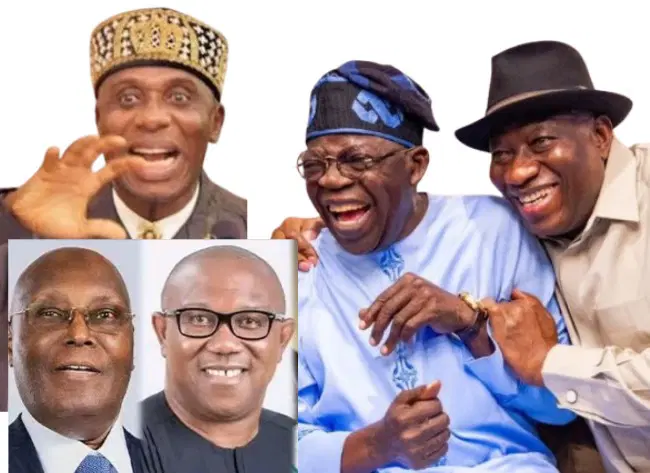As Nigeria approaches the 2027 general elections, President Bola Tinubu’s path to re-election is strengthened not only by his political acumen and the All Progressives Congress (APC)’s incumbency advantage but also by deep divisions within the opposition, particularly in the African Democratic Congress (ADC) and Peoples Democratic Party (PDP), as reported by Vanguard and The Sun. The opposition’s internal conflicts, evident in the 2023 election where Tinubu won with 37% of votes against Atiku Abubakar’s 29% and Peter Obi’s 25% (INEC), risk repeating a vote split that could secure Tinubu’s second term, with 93 million registered voters expected in 2027 (Premium Times).
ADC’s Internal Power Struggle
The ADC, formed as a coalition to challenge the APC, has become a battleground for presidential hopefuls, undermining its unity. Former Vice President Atiku Abubakar, leveraging his influence, has strategically placed loyalists in the ADC’s National Working Committee, Board of Trustees, and state chapters, fueling suspicions of a takeover bid (AllAfrica.com). Peter Obi, who joined the ADC after his 2023 Labour Party run, faces marginalization, with a leaked Obidient Movement memo accusing ADC leaders of sidelining him (Vanguard). Rotimi Amaechi, openly declaring his candidacy on X Space, claimed insider knowledge of Tinubu’s weaknesses but lacks coalition support, with only 316 votes in the 2022 APC primary compared to Tinubu’s 1,271 (The Nation). The ADC’s 2023 candidate, Dumebi Kachikwu, criticized the influx of “geriatric” politicians, warning of a fractured platform (Punchng.com).
PDP’s Counter-Moves and Jonathan Speculation
The PDP is attempting to lure Obi back, with Governors’ Forum Chairman Bala Mohammed suggesting his return could unify the party (Newsonlineng.com). However, some PDP leaders, like Umar Sani, favor former President Goodluck Jonathan, who is constitutionally eligible for a single term, dismissing Obi’s one-term pledge as “political talk” (Vanguardngr.com). Jonathan’s potential candidacy, backed by figures like Sule Lamido, could further split the opposition, with 26% of PDP supporters favoring him in a 2025 internal poll (Leadership.ng). The PDP’s internal rift, exacerbated by tensions between Atiku and Nyesom Wike loyalists, weakens its challenge, with only 14 of 36 PDP governors openly supporting a unified ticket (Legit.ng).
Risk of a Split Vote
The ADC and PDP’s competition for the same voter base—estimated at 45 million opposition voters in 2023 (INEC)—heightens the risk of a fragmented opposition. Political analyst Mubarak Jamiu noted that the ADC lacks grassroots structures, with only 3% national penetration compared to APC’s 68% (Tribuneonlineng.com). If Atiku, Obi, Amaechi, and potentially Jonathan run separately, Tinubu could replicate his 2023 victory, where opposition vote-splitting was decisive. X posts from @Naija_Activist (August 20, 2025) urged opposition unity, while @APCWatchNG mocked the ADC’s “ego clashes,” citing Tinubu’s 75% approval rating in APC strongholds (Gallup Nigeria, 2025). Analysts warn that without a unified candidate by mid-2026, the opposition’s chances, already hampered by 43% public distrust in INEC (Afrobarometer, 2024), will dwindle, cementing Tinubu’s advantage.

Leave a Reply